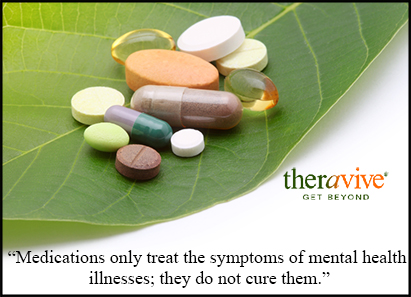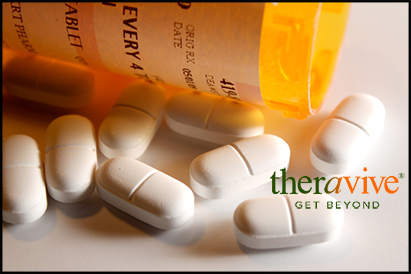 Prescription medications are commonly employed to treat a variety of mental health illnesses. Diseases treated with prescription medication include: schizophrenia, depression, bipolar disorder, anxiety disorders, and attention deficit-hyperactivity disorder (ADHD). Ideally, these medications are used with talking therapy, at least until they are shown to be working well (Mental Health Medications, 2014).
Prescription medications are commonly employed to treat a variety of mental health illnesses. Diseases treated with prescription medication include: schizophrenia, depression, bipolar disorder, anxiety disorders, and attention deficit-hyperactivity disorder (ADHD). Ideally, these medications are used with talking therapy, at least until they are shown to be working well (Mental Health Medications, 2014).
Side Effects
Occasionally, these medications have side effects. Usually these problems are minor and short-lived. For example, medicines to treat depression often cause a little diarrhea initially. Drugs used to treat ADHD often lead to a loss of appetite. But there can be serious side effects of medication. For example, older meds used to treat depression could lead to a sudden spike in blood pressure leading to a stroke. More specific information on medicines can be found at the Food and Drug Administration (FDA) website listed below (Drug Information at the FDA, 2014).
Some persons will experience no side effects at all. Or the side effects will be minimal and easily tolerated given the relief from symptoms of mental illness.
Scientists are working on solutions to assist in the determination of which medication is best for which person. In the future, they will be able to assess a person’s genetics and then determine which medication will work best for them.
Considerations
Meanwhile there are many other factors that affect how medications work in each person. They include:
· type of mental disorder (depression, anxiety, bipolar disorder, and schizophrenia);
· age, sex, and body size
· illnesses other than mental health issues
· smoking
· drinking
· liver and kidney function
· other medications and herbal/vitamin supplements
· diet
· whether medications are taken as prescribed
· use of recreational drugs
As always, it is important to discuss all these factors with the mental health professional. Also remember to tell your doctor about any other remedies you are using, such as herbal supplements. For example, St. John’s Wort is an old folk cure to depression. Unfortunately, it has not been shown to be effective in scientific studies (Hypericum Depression Trial Study Group, 2002).
Finding the correct medication can be a challenge. Having a good psychiatrist—a medical doctor that can prescribe these medications—and psychotherapist—a person with whom you discuss your problems—are key to finding the right balance for each individual.
Medications only treat the symptoms of mental health illnesses; they do not cure them. By taking medications, individuals can better function in the world. Sometime the meds need to be taken only for a short while. Other times, the patient may need to be on the medication for several years. This is especially true for problems like schizophrenia, bipolar disorder, long-term depression, or anxiety.
 Prescription Psychoactive Medications and the Brain
Prescription Psychoactive Medications and the Brain
Psychoactive meds operate by affecting the brain’s chemistry to aid in correcting imbalances. By interacting with specific proteins found in the brain, drugs can modify one or more of the following: mood, cognition, perception, or behavior. Each specific medication has a specific interaction with a specific part of the brain.
Messages in the brain are carried by substances called neurotransmitters. They move from one cell to another, carrying information. Neurotransmitters bind to receptors to complete the transfer of information. If there are not enough neurotransmitters around, there is a problem. If there are too many neurotransmitters around, there is a problem. If there are not enough receptors around there is a problem. If there are too many receptors around there is a problem (Goodman, 2000).
Medications for mental disorders work to fix these communication problems within the brain. One way this is accomplished is through increasing or decreasing the amount of neurotransmitters present in the brain.
Another way that medications affect the brain is by changing the availability of receptors in the brain. This alters communication between brain cells (Seligma, 1984).
Conclusion
Treatment of mental illness often utilizes both talking therapy and medication. Using both at the same time has the best long-term prognosis. Once the symptoms of a disorder can successfully managed, then medications can be taken with only occasional visits to a physiologist.
Obviously, this is an informational blog. Please consult a mental health professional with a specific problems pertaining to yourself or a loved one. Many good professionals can be found at www.theravive.com
______________________________________________________________________________________________________________
Drug Information at the FDA. 2014. Retrieved on May 21, 2014. http://www.accessdata.fda.gov/scripts/cder/drugsatfda/index.cfm
Goodman, Louis S., et al. 2000. The Pharmacological Basis of Therapeutics, 9th ed. Elmsford, NY: McGraw-Hill.
Hypericum Depression Trial Study Group. 2002. Effect of Hypericum perforatum (St. John’s wort) in major depressive disorder: a randomized controlled trial. Journal of the American Medical Association, 287(14): 1807-1814.
Mental Health Medications. Retrieved on May 21, 2014. http://www.nimh.nih.gov/health/publications/mental-health-medications/nimh-mental-health-medications.pdf
Seligma, Martin E.P. 1984. Abnormal Psychology. W. W. Norton & Company.